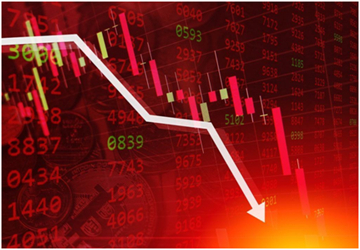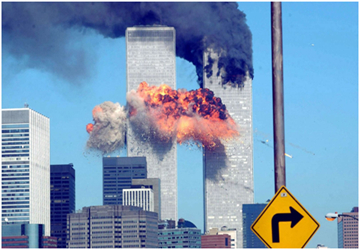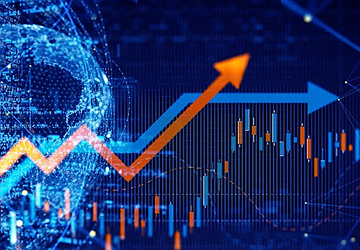Famous Stock Market Crashes: From Black Monday to the Flash Crash
Have you ever heard the saying "what goes up must come down"? Well, that can sometimes be all too true in the world of investing. We're talking about stock market crashes - those infamous moments when investors saw their portfolios take a nosedive faster than a rollercoaster. Nothing can be as exciting as a crash if you are not part of it; conversely, it could be the worst nightmare for people with a stake in the companies or assets that are annihilated. We will look at 12 famous stock market crashes throughout history and what caused them so that you can be vigilant enough to read the signs and cushion yourself or even avoid the next big crash.

1. Tulip Mania (1636-1637)
Let's start way back in the 17th century with Tulip Mania. Believe it or not, at one point in time, tulips were worth more than gold in the Netherlands. People were buying and selling tulip bulbs for outrageous prices, and it all came crashing down in 1637 when the tulip market suddenly collapsed. It's a good reminder that just because something is popular doesn't mean it's always a good investment.
2. South Sea Bubble (1720)
Fast forward a few decades, and we have the South Sea Bubble. This was a stock market craze in England that saw investors pouring money into a company with a monopoly on trade with South America. As you can probably guess, the bubble burst, and investors lost a ton of money. Lesson learned? Beware of the hype, and always do your research before investing.
3. Wall Street Crash (1929)
Ah, the roaring twenties. It was a time of excess and optimism, but it all came crashing down in 1929 with the Wall Street Crash. Over a few days, the stock market lost nearly 25% of its value, and the Great Depression soon followed. This crash serves as a reminder that markets can be unpredictable and that having a diversified portfolio is important.
4. Black Monday (1987)
We already mentioned Black Monday earlier, but it's worth revisiting. This was the biggest one-day percentage drop in stock market history, leaving investors reeling. The market lost nearly a quarter of its value in just one day. It's a good reminder that even the most stable markets can experience sudden and dramatic drops.
5. 9/11 Attacks (2001)
The terrorist attacks on September 11, 2001, profoundly impacted the stock market. The market was closed for several days after the attacks, and when it reopened, it saw a sharp drop in value. The attacks served as a reminder that even global events that seem unrelated to the stock market can significantly impact it.

6. The Dot-Com Crash of 2000
The early 2000s saw a massive rise in internet-based companies, with many investors pouring money into these businesses hoping to make big returns. However, the bubble soon burst, and the stock market significantly declined. The technology-heavy NASDAQ lost around 80% of its value, and companies like Pets.com, Webvan, and Boo.com, which had once been valued in the billions, went bankrupt.
7. The Financial Crisis of 2008
The 2008 financial crisis is one of modern history's most significant economic downturns. It was caused by a combination of factors, including the housing market crash, the failure of large financial institutions, and the spread of subprime mortgages. The crisis led to massive job losses, the collapse of many businesses, and a global recession that lasted for several years.
8. Flash Crash of 2010
On May 6, 2010, the US stock market experienced a sudden and rapid decline, which came to be known as the Flash Crash. Within minutes, the Dow Jones Industrial Average lost around 1,000 points, and many high-profile stocks saw their prices drop to just a few cents. The cause of the Flash Crash remains unclear, but some experts believe a large sale of stock futures contracts may have triggered it.
9. China's Black Monday of 2015
On August 24, 2015, China's stock market experienced a massive sell-off that came to be known as Black Monday. The Shanghai Composite Index lost around 8.5% of its value in a single day, and the government was forced to intervene to prevent a complete collapse of the market. The crisis was caused by many factors, including concerns over China's economic growth and a devaluation of the country's currency.
10. COVID-19 Crash of 2020
The COVID-19 pandemic brought about a new era of economic uncertainty, with the stock market experiencing some of its most significant losses in history. In March 2020, the S&P 500 lost around 12% of its value in a single day, and many other indexes saw similarly significant declines. The pandemic caused widespread job losses, business closures, and economic disruption, with governments worldwide implementing unprecedented measures to try and mitigate the impact.

11. GameStop Saga of 2021
In early 2021, amateur investors on Reddit began buying up shares in struggling video game retailer GameStop, causing the stock's value to skyrocket. This led to a short squeeze, in which hedge funds that had bet against the stock were forced to buy it back at much higher prices, resulting in significant losses. The GameStop saga highlighted the power of social media and the potential for ordinary investors to disrupt the traditional stock market.
12. Evergrande Crisis of 2021
In recent years, China's property market has seen significant growth, with companies like Evergrande becoming major players in the industry. However, in September 2021, Evergrande faced a major crisis when it became clear that the company was struggling with significant debt levels. This caused widespread concern in the stock market, with investors fearing a potential collapse of the Chinese economy.
Conclusion
Stock market crashes have been a recurring feature of economic history, with many significant events have caused widespread disruption and uncertainty. While it's impossible to predict the next crash, it's important to be aware of the potential risks and to take steps to protect your investments. By diversifying your portfolio, monitoring market trends, and seeking expert advice when necessary, you can help mitigate the impact of any future market downturns.


